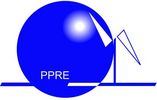Transaction-based energy systems are emerging as a promising solution for orchestrating the growing number of dispersed prosumers and participation of non-dispatchable renewable energy sources at the distribution grid. Under the framework of transactive energy (TE), distributed flexible resources are directly controlled by their owners through a market-based operation. Each connected user (for example a smart home, a solar roof, smart building, industrial site, storage owner, electric vehicle, etc.) is able to engage in market trade, negotiating a transaction at the distribution system level.
The main objective of this PhD research is to evaluate the impacts of market-based control of the power system at distribution level. In order to reach such a general objective, specific goals are assigned as follows (not restricted to):
- To analyze the transactive energy concept, enabling technologies, frameworks and to understand its contribution to smart grid modeling and analysis;
- To evaluate blockchain as a distributed computing approach as means of implementing a decentralized, autonomous and automated transaction-based power system;
- To model and simulate a transaction-based energy system with high penetration of distributed energy resources (DER) and storage systems;
- To gain an understanding of how DERs perform individually and when interacting with the quasi-dynamic simulation to meet common grid management objectives under this approach;
- To analyze the potential benefits and downsides of the proposed method for performance and operation of the power grid under a set of specific criteria, for example, feeder capacity and power quality issues, in comparison to other distribution-level energy management approaches.
The complete article is available at: https://onlinelibrary.wiley.com/doi/full/10.1002/2050-7038.12194




